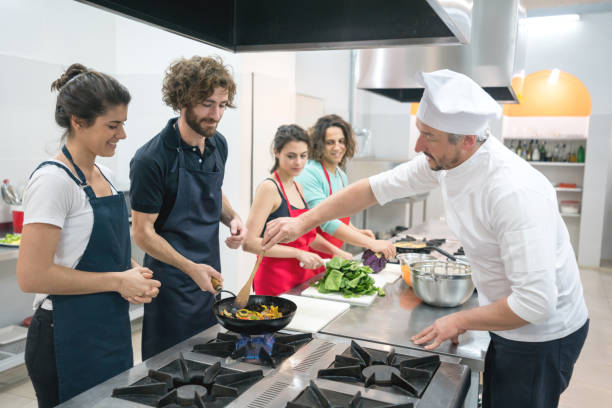Introduction
Cooking is an essential skill that not only ensures we nourish ourselves but also allows us to express creativity and culture through food. Whether you’re a novice in the kitchen or an experienced home chef looking to refine your skills, these cooking tips will help elevate your culinary creations.
Prepping Like a Pro: Mise en Place
Mise en place, a French term meaning “everything in its place,” is a fundamental principle in professional kitchens. This involves prepping and organizing all your ingredients before you start cooking. Chop vegetables, measure out spices, and have all your tools at hand. This preparation ensures a smooth cooking process and helps prevent mistakes.
The Importance of Knife Skills
Good knife skills are crucial for efficiency and safety in the kitchen. Learning how to properly hold a knife, as well as techniques like chopping, dicing, and julienning, can make food preparation faster and more enjoyable. Investing time in practicing these skills will pay off in the long run.
Mastering Basic Techniques
Familiarize yourself with basic cooking techniques such as sautéing, roasting, boiling, and grilling. Understanding these methods will allow you to follow recipes more accurately and experiment with your own creations. Each technique has its own set of rules, but once mastered, they can be adapted to various ingredients and dishes.
Seasoning and Flavoring
Proper seasoning is the key to delicious food. Salt enhances the natural flavors of ingredients, while herbs and spices add depth and complexity. Taste your food as you cook and adjust the seasoning accordingly. Don’t be afraid to experiment with different spice blends and herbs to find your unique flavor profile.
Cooking Times and Temperatures
Understanding cooking times and temperatures is essential for achieving the desired texture and flavor in your dishes. Overcooking can result in dry, tough food, while undercooking can leave ingredients raw and unappetizing. Invest in a good kitchen thermometer to ensure meats are cooked to the right temperature and follow guidelines for other ingredients.
Embracing Fresh Ingredients
Fresh ingredients make a significant difference in the taste and quality of your dishes. Whenever possible, opt for seasonal produce and high-quality meats and seafood. Visit local farmers’ markets and build relationships with vendors to get the best ingredients. Fresh herbs and vegetables, in particular, can elevate a dish from good to outstanding.
Experimentation and Creativity
Don’t be afraid to step out of your comfort zone and try new recipes or cooking methods. Cooking is an art as much as it is a science, and creativity can lead to delightful culinary discoveries. Experiment with different cuisines, ingredients, and techniques to keep your cooking experience exciting and enjoyable.
FAQs
Q1: How can I improve my knife skills?
A1: Practice is key. Start with basic cuts like chopping and dicing, and gradually move on to more complex techniques. Watching tutorials and taking a cooking class can also be very helpful.
Q2: What are some essential spices every kitchen should have?
A2: Common essential spices include salt, black pepper, garlic powder, paprika, cumin, and oregano. These can form the base of many recipes, and you can build your collection from there.
Q3: How do I know if my meat is cooked properly?
A3: Using a kitchen thermometer is the most reliable method. For example, chicken should be cooked to an internal temperature of 165°F (74°C), while beef steaks can vary based on your preference from rare (125°F) to well-done (160°F).
Q4: What is the best way to store fresh herbs?
A4: Fresh herbs can be stored in the refrigerator, either wrapped in a damp paper towel or placed in a glass of water covered loosely with a plastic bag. Some herbs, like basil, are best stored at room temperature.
Q5: How can I make my dishes more flavorful?
A5: Layering flavors is key. Start with a good base, such as sautéing onions and garlic, then add herbs and spices. Taste and adjust the seasoning throughout the cooking process, and finish with a splash of acid like lemon juice or vinegar to brighten the dish.

